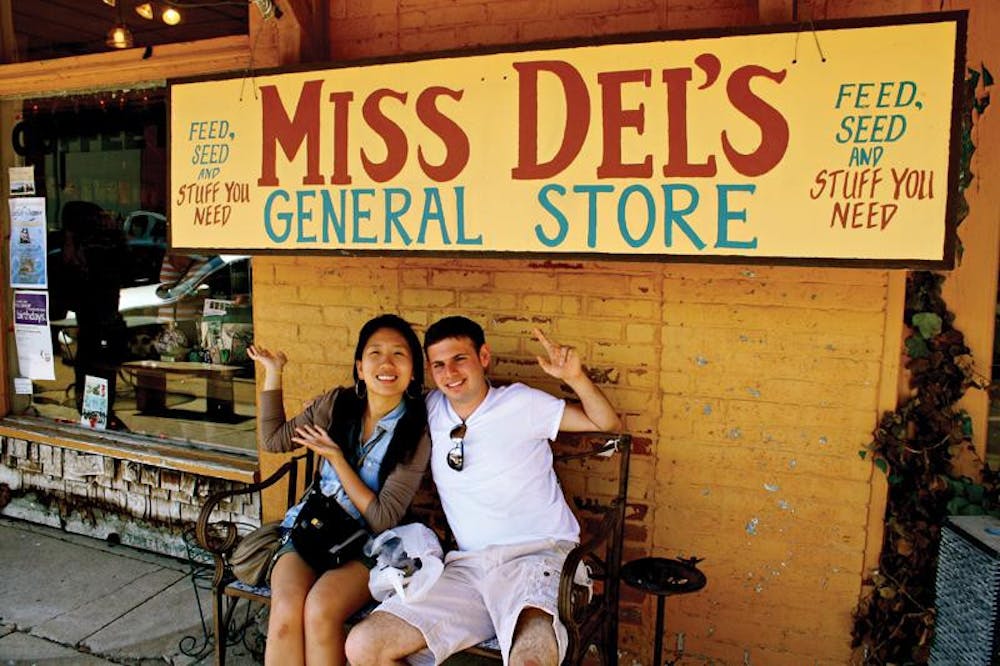When seven students visited Tougaloo College in Mississippi over spring break to do first-hand research on the American civil rights movement, they were faced with more than just primary source documents. They also experienced life on Tougaloo's campus, visited museums documenting the movement and participated in a rally, which served as a reminder that the issues of the civil rights era persist today, students said.
Through the Brown-Tougaloo exchange program established in 1964, students from Brown and Tougaloo - a historically black liberal arts college - can switch schools for a semester. But this one-week program allowed six undergraduates and one graduate student to experience life in the Deep South during their spring break.
The trip offered "an experience to Brown undergraduates unfamiliar with the Deep South who study the mass civil rights movement," said Francoise Hamlin, assistant professor of history and Africana studies. "The trip provides context and texture to the classes I teach, and each student (conducted) individual research in the local archives to facilitate the learning experience." While all students could apply to attend the trip, most of those who originally applied were from courses Hamlin teaches - AFRI 1090: "Black Freedom Struggle Since 1945" and HIST 2790: "Rethinking the Civil Rights Movement."
Through the program, students experienced past and present life in Mississippi. In addition to spending time exploring the Mississippi Civil Rights Collection at Tougaloo, students lived on Tougaloo's campus for a week, attending Sunday services, classes, barbecues and carnivals, Hamlin said.
Jenny Li '14 returned to Tougaloo for the first time since she participated in the semester exchange last fall.
"I expected to feel like I was going home, and that's exactly how it felt the moment I stepped on campus," she said.
The group also took a two-day trip up to Memphis, Tenn., to visit the National Civil Rights Museum and to the Mississippi Delta to visit the Blues Museum and the B.B. King Museum.
The trip to the National Civil Rights Museum "corrected the oversimplified historical narrative" that students still learn in elementary school, said Samantha Jackson GS, who is taking Hamlin's history course.
"I was just thinking all about what I was taught in school," Jackson said. "It was a real re-education."
Students said connecting their research to current affairs was also a very important aspect of the experience.
"The response to Trayvon Martin was a huge part of our trip," Jackson said. Martin, a black teenager from Florida, was killed in February by Neighborhood Watch Association member George Zimmerman, who said he was acting in self-defense. Controversy ensued after no arrest was made in the case, with some alleging that Martin's race played a role in the police department's response. Martin's supporters have been holding rallies across the country over the last week.
Jackson said she participated with Brown and Tougaloo students and professors alike in a rally for Martin at the Jackson, Miss., town hall.
"You always hear about it," Jackson said. "But to actually be a part of a rally, all fired up - it felt great."
"At Brown, it's easy to toss around words like 'privilege' and 'oppression,' to isolate them in an academic context," said Harry Samuels '13. "Racism is not just some stain that has gone away, that is all better now," he added. "Racism and the impediments to upward mobility that go along with it are alive and well."





